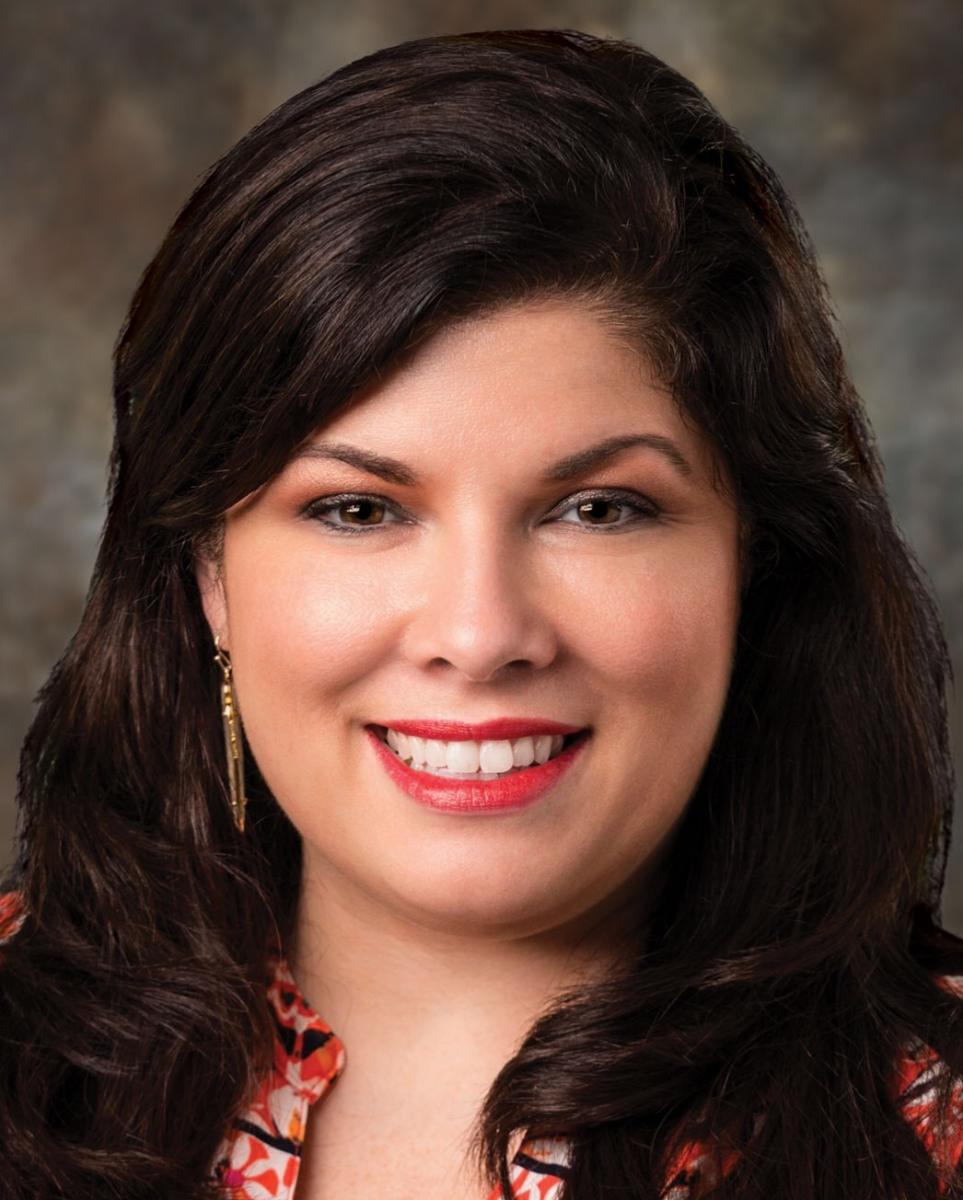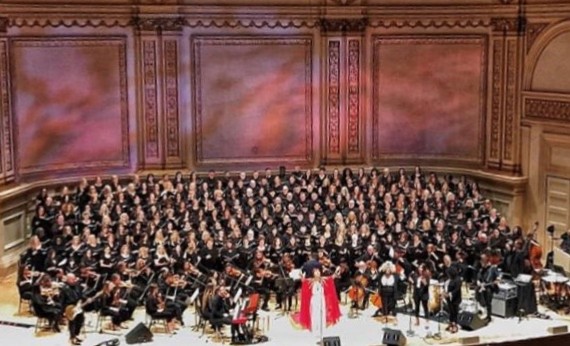 Editor's note, August 6, 2019: The following post by Dr. Ashley Love Sumrall was recognized with a 2019 APEX Award for Publication Excellence in the category of Social Media - Best Single Blog Post. Congratulations, Dr. Sumrall!
Editor's note, August 6, 2019: The following post by Dr. Ashley Love Sumrall was recognized with a 2019 APEX Award for Publication Excellence in the category of Social Media - Best Single Blog Post. Congratulations, Dr. Sumrall!

By Ashley Love Sumrall, MD, FACP
Because I counsel dying patients on a daily basis, discussing goals has become routine. In addition to goals of care, we talk about goals in life. “What do you hope to experience before you pass away?” I will ask. When asked directly, I find that many patients will discuss their cancer goals. “No,” I press, “What really matters to you? What makes you happy?” With renewed focus, they will often shyly mention one or two items on their bucket lists. Sometimes they seem embarrassed, or their eyes may fill with tears. I have helped patients and families plan for one last vacation together more times than I can recall, and I find this to be as fulfilling (or more) than crafting a cancer treatment plan. Our wants are too often pushed aside by medical teams.
I have crafted my own bucket list, although I have never shared it. Recently, I was able to check off one of my top placeholders.
I grew up on a stage. As a child, I began dancing competitively, then singing once I found my voice. I loved an audience. In college, I trained in classical voice and would often wind down from an organic chemistry test with an hour or two in a practice room with an old upright piano and thick, padded walls. After graduation, time for hobbies dropped quickly. With marriage, then medical school, followed by residency, fellowship, and such, I gradually relinquished free time. One by one, I missed opportunities to perform. Church has always been an outlet of sorts, but my inconsistent attendance (working, on call, post-call, etc.) made dedication to choir impossible.
But when I learned of an opportunity to sing at the iconic Carnegie Hall with my favorite Christian artist, I jumped at it. After checking my work and call schedules, and sending my husband a series of rapid-fire texts, I raced to the website to sign up. Months later, I found myself onstage at Carnegie Hall, dressed in black semiformal attire, and realizing a lifelong dream.
That weekend, I learned about the rules of Carnegie Hall, and was reminded of how those rules could translate into lessons for medicine, specifically oncology.
1. No photos or videos.
What? When our group learned of this Carnegie policy, we were shocked. In an era of “pictures or it didn’t happen,” how would we (gasp) remember our time on stage? After we made peace with it, I started to think that it was a perfect opportunity to practice being in the moment. I am admittedly pretty unskilled at this endeavor, always multitasking in my personal and professional lives. Reluctantly, I found myself enjoying the lack of distraction. I examined the architecture and lighting of the historic hall. I imagined that my view from the infamous stage of the main hall was the same shared by such greats as Frank Sinatra, Billie Holiday, The Beatles, and Judy Garland.
I think our patients treasure moments in ways that we never will. With some exceptions, they rarely have photo or video evidence of the moments when we announce that they are in remission from cancer. They may memorize all of the details of the moment, only to share them with us later: what we were wearing, the nurse in the room, the clock ticking, or the crooked frame on the wall. They can easily access an instant replay of those memories, pulling them from their memory cobwebs when they are needed most. Sadly, this also happens every time we share bad news with them. They remember it all… the room, the song on the piped-in hallway music, or the bandage color on the accessed port.
2. There are no do-overs.
The main hall at Carnegie isn’t a local high school stage. It is a world-class venue where the patrons in the audience expect perfection. Our show was sold out! If a cue is missed, you can’t restart the act. Singers, musicians, and personnel must be flawlessly synchronized, with eyes on the conductor. There are 2,804 pairs of eyes on you.
In cancer therapy, you usually have one true shot to get it right. One surgery where millimeters of invasion for margins matter. One stereotactic radiosurgery treatment where physicists and dosimetrists plan for a week for delivery of targeted high-dose radiation near vital structures. Your one chance may prove to be the wrong one, as well. One dose of cardiotoxic chemo may induce heart failure. Or one cycle of high-dose chemo followed by a stem cell transplant may result in unexpected death. In oncology, we know the stakes are higher—literally life and death, often—but the lesson is the same.
3. Practice.
“How do you get to Carnegie Hall? Practice, practice, practice,” is the saying. The key to success in music is preparedness and rehearsal. Prior to Carnegie weekend, I rehearsed at home with pages of music for hours. As our group assembled in New York, we rehearsed for hours. On the day of our performance, we crowded onstage and stood for hours, singing our hearts out while the orchestra played. Our star quoted Malcolm Gladwell, noting that at least 10,000 hours had gone into her preparation for this day.
All members of the cancer treatment team require years of practice. Cancer surgery, of course, requires a lifetime of practice. Having an end-of-life conversation also requires practice. Medicine is a field where practice should never stop.
4. Focus on your conductor.
When do we cut off a note? When should we stand or sit? For these cues, you rely on your leader. As we rehearsed on stage, our group struggled to tackle a difficult entry into our part of the finale. The strings and drums were in full swing when it was our turn to come in with a staccato note in forte! We stopped and started at least three times. Imagine the horror of a few tenors who missed the cue on the second attempt. By the third, we were flawless.
In cancer treatment, there is a team, but only one leader. It is prudent to learn to focus on the leader, or to become the leader. Our patients and families look to us to lead the way. With that trust comes a need for teammates to set aside their egos and work together for the greater good of the patient.
5. Focus on your part. Do it right, and it will blend with others.
In a musical group, each individual plays a role. If one person stops paying attention, even for a moment, they can disrupt everything the entire group has worked for. It is pretty humbling when you think about it.
This maxim applies easily to oncology. As our subspecialties grow and our ancillary services expand, a team approach matters more than ever. In my field of neuro-oncology, one patient’s journey requires a neurosurgeon, radiation oncologist, neuro-oncologist or medical oncologist, clinical trial team, rehabilitation team, as well as nurses, pharmacists, and more. Each person must practice at the top of their skill level. We may have 20 or more health care professionals who touch each patient. Our teams are choreographed to work together for the best outcome for the patient.
6. There is always someone better than you.
Every performer knows that they can be replaced easily. A better singer or drummer could stroll onstage and bring down the house. A newer, younger version with different training could replace you, and audiences are fickle. A savvy performer knows that they must continue to grow their talent and look for opportunities for growth.
In oncology, the standard of care is available in many places. We oncologists must readily admit that drug doses and radiation schedules are consistent across state lines. Still, patients travel miles to see “the best” in a field. Websites review us as if we were hobby shops. It is easy to feel threatened. The nuances of care come with refined bedside manner, offerings of clinical trials, and more. This should encourage us to keep pushing for more trials and bigger opportunities for our patients. We should feel competitive in a way that is healthy and promotes the best for the patients.

7. We have room for more.
On our stage we had about 300 performers. As you can see in the photo, the singers were packed in so closely that we could not fully open our binders of music. Still, there was room for more. For those with talent and dedication, we can always share the stage.
We should rest assured that there will always be room for more in the field of oncology. Sadly, we have so far to go. There is so much work to be done, especially in the arena of clinical trials. We welcome more people to those teams.
8. Use the instruments given to you.
I learned in preschool that we are all singers, but learned later in life that not all of us are good singers. Some individuals were blessed with angelic voices. Thankfully, music is comprised of so many parts. Aside from voices, there are many musical instruments available.
We are born both with innate gifts and with the ability to learn. How we choose to use those instruments matters. For oncologists, we chose to go to medical school and not business school. We chose a field that moves quickly and is riddled with sadness. We chose to refine our instruments in a way that serves those in the most vulnerable places of their lives.
9. Take time for celebration and praise.
Our performance was paused on at least 10 occasions for standing ovations from a sold-out audience. Our incredibly generous star motioned to her chorus and team and thanked us repeatedly throughout the evening. When the last song ended (and the tenors were on point!), a beautiful standing ovation occurred. Applause in Carnegie is unlike any other applause I have experienced. There were so many tears of celebration and joy. The house lights went up, and you could feel the palpable joy in the crowd.
In oncology, and in medicine, we don’t always stop to smell the roses. When people ask us why we would pick such a “sad field,” we shrug. We don’t celebrate our team’s victories enough. We don’t praise our teammates enough. We don’t thank our patients enough. We would be well-served to cultivate an attitude of celebration, thanksgiving, and humility as we walk beside these individuals.
As for my own experience, I can assure you that performing at Carnegie Hall for any music enthusiast is worth the effort. Just like medicine, when you move just outside of your comfort zone, there can be big rewards. Also, like medicine, this experience is made for sharing. I took my 10-year-old daughter with me, and she also performed. She taught me several of these lessons.
Dr. Sumrall is the neuro-oncology section chief and an assistant professor at Levine Cancer Institute. She is a participant in ASCO’s Leadership Development Program and a member of the Practice Guidelines Implementation Network, among other volunteer activities.


Recent posts